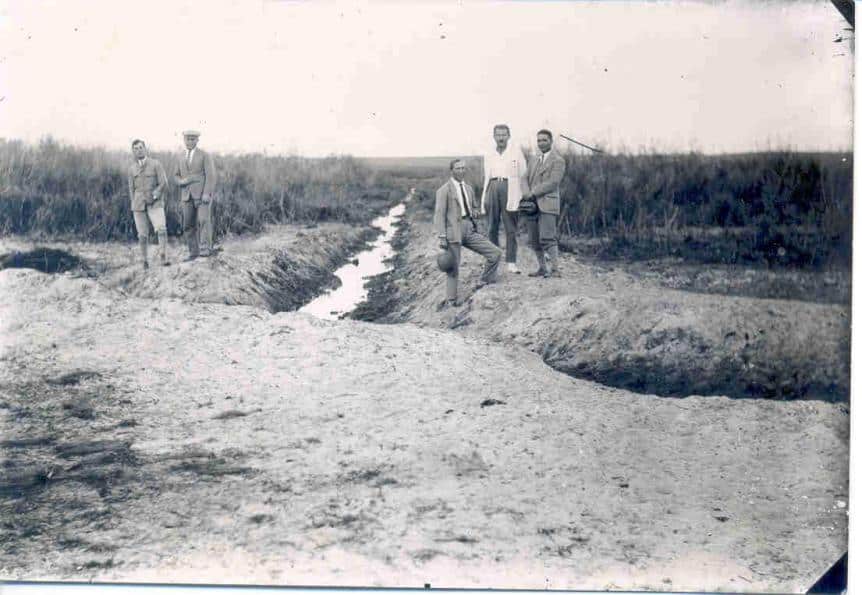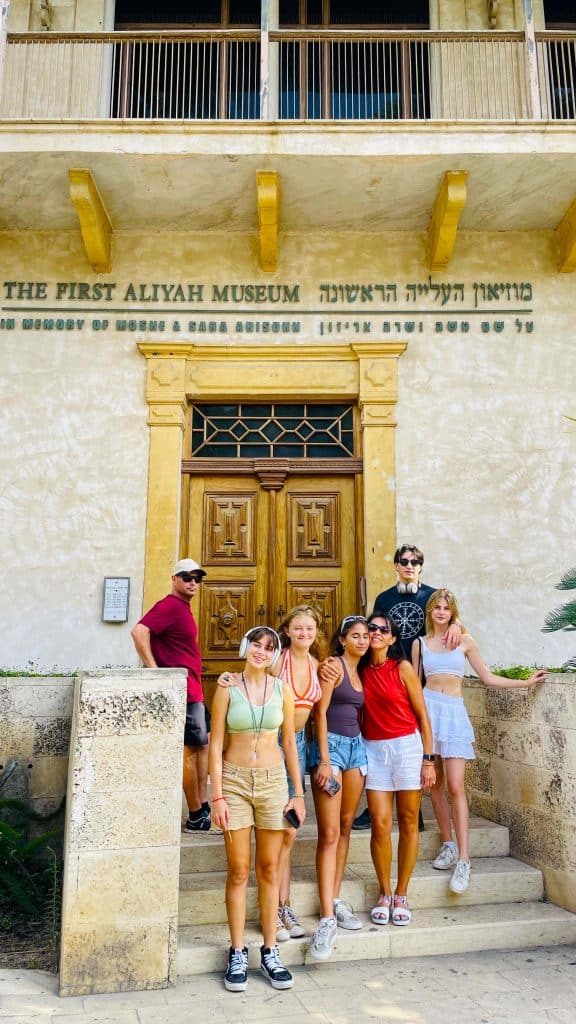The First Aliyah, also known as the agriculture Aliyah, was a significant wave of Jewish immigration to Ottoman Syria between 1881 and 1903. This first wave of immigrants was the beginning of the return to Zion after 2,000 years of exile and was motivated by nationalism. During these years some 25,000 Jews emigrated from Russia and Romania, and 2,500 arrived from Yemen.

During the First Aliyah In all, nearly 35,000 Jews came to Palestine. Almost half of them left the country within several years of their arrival, some 15,000 established new rural settlements, and the rest moved to the towns.
This wave of immigration was part of a larger migration of Jews, who more commonly ended up in the major cities of Central and Western Europe and other continents like North and South America, Australia, and South Africa.
The First Aliyah Museum in Zichron

The first 14 immigrants (biluim) arrived at Jaffa port on July 6, 1882. Most of the immigrants (olim) during this period came from Eastern Europe and were members of the two early Zionist movements known as Hibbat Zion and Bilu. The members defined their goal as the political, national, and spiritual resurrection of the Jewish people in Palestine.
Though they were inexperienced idealists, most chose agricultural settlement as their way of life and founded moshavot — farm owners’ villages based on the principle of private property. Three early villages of this type were Rishon Lezion, Rosh Pina, and Zichron Ya’akov.
The New Yishuv And The First Aliyah
The journey was not easy, and the First Aliyah settlers encountered many difficulties, from disease, inclement weather, Arab opposition, and crippling Turkish taxation. They received a small amount of aid from Hibbat Zion and a substantial amount from Baron Edmond de Rothschild.
Baron Edmond de Rothschild provided the moshavot with his patronage and economic assistance. The Yemenite immigrants (In Hebrew: Olim), most of whom settled in Jerusalem, were first employed as construction workers and later in the citrus plantations of the moshavot.
During the 22 years between 1881 and 1903, the members of the First Aliyah established new Hebrew settlements and agricultural communes that became the basis of Jewish settlement in the Land of Israel, known as the New Yishuv.
The establishment of these 32 colonies and settlements laid the foundations for developing the Hebrew agricultural economy, considered one of the First Aliyah’s great achievements. Baron Edmond de Rothschild provided the moshavot with his patronage and economic assistance.
Enormous difficulties and personal sacrifice accompanied the establishment and development of these farming colonies, which were the jewel in the crown of the new Yishuv. The first colonies established were Rishon Lezion, Zichron Yaacov, Rosh Pina, and Petah Tikva. Later, Rehovot, Menahemia, Metula, Nes Ziona, Gedera, Hadera, Atlit, and other colonies followed.
The establishment of agricultural projects such as the winery in Rishon Lezion and the purchase of land by philanthropists and organizations, the most prominent among them Baron Edmond James de Rothschild, are also significant accomplishments.

